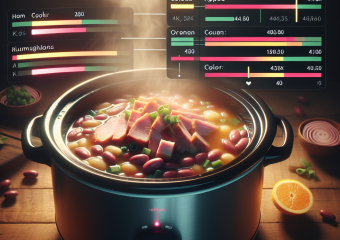Research into the gut microbiome has flourished in recent years, giving us more insight into our internal world and leading to a different focus on the food we eat.
Our gut — or gastrointestinal system — includes our stomach, intestines and colon.
It’s a hard-working part of the body that digests food, absorbs nutrients and excretes waste.
The gut microbiome is the ecosystem of diverse microbes that live in our intestines.
We’re now coming to realise that the food we eat has a big impact on the health of that microbiome and a knock-on effect on many other aspects of our overall health.
 Jens Walter, Professor of Ecology, Food and the Microbiome at University College Cork
Jens Walter, Professor of Ecology, Food and the Microbiome at University College Cork
“Virtually every chronic disease and infectious disease is linked to the microbiome,” says Jens Walter, professor of ecology, food and the microbiome at University College Cork’s APC Microbiome Ireland research centre.
Walter started food science in his native Germany before becoming immersed in the world of the microbiome while doing his postdoc in New Zealand.
He maintained this focus through work in universities in the US and Canada before arriving to take up his UCC post in 2020.
He says the microbiome “is an integral part of our biology — we live in symbiosis with it.”
Distinctly different from the microbiomes of other species — “look at a cow, this animal could never live with our microbiome” — it has developed over millions of years, evolving to benefit humans.
“Without these microbes, the immune system and the metabolism do not function efficiently,” says Walter.
“It is the engine that drives us. We are humans that live in association with our microbiome.”
Even for the casual observer, it’s been interesting to see the shift in focus from bacteria as the bad guys to the positive things that they can do.
Walter would agree: “There’s definitely been a change in thinking and priorities. Looking at microbiology as a field, much of the focus was on pathogens but over the years we have developed a greater appreciation that bacteria do a lot of good in the health and environment.”
He notes that it’s very much a symbiotic relationship, one in which organisms exist together in a mutually beneficial way. So, it makes a lot of sense for us to look after our microbiome.
His recipe for a healthy microbiome goes back to basics.
“The key message,” he says, “is to eat a diversity of food, choose whole grains over processed, increase fibre, look at proteins and fats – focus on plant-based proteins, beans and legumes and nuts – and include fatty fish [for example, sardines, mackerel, salmon] in the diet. Lean red meat is OK but in moderation.”
 Pic: iStock
Pic: iStock
Other acceptable foods to include are low-fat and normal-fat dairy, but, says Walter, “avoid saturated fat [found in cheese, bacon, biscuits, etc.] as it is detrimental to the microbiome.”
He urges people to avoid eating ultra-processed food (UPF). “They have a lot of ingredients that means they cause disruption to the microbiome, for example, sweetened beverages and processed meats [like salami].”
Processed or packaged food low in fibre, high in salt and containing ingredients like emulsifiers has a direct impact on your microbiome: “These degrade the mucus layer in the gut… creating inflammation” and causing lots of problems in the longer term like chronic non-communicable diseases, such as type 2 diabetes and Crohn’s disease.
Walter recommends reading food labels and avoiding anything that has a long list of ingredients: “If you have no clue what they are, you shouldn’t eat it or only eat it in moderation. It should not be a food staple.”
It’s good to consider the big picture as well. “This is about your food staples, not the occasional thing,” he says. “It doesn’t help if you eat one or two salads a week if the rest of your diet is [rubbish]. Make the core of your diet healthy.”
He sums up his advice with a line that American author and journalist Michael Pollan used in his compelling 2008 book “Eat food. Not too much. Mostly plants.”
While academic research can sometimes be abstract and not have an impact outside the laboratory, has Walter’s work on the microbiome had an impact on the food that he eats?
“I have completely changed my diet and stick for the most part to recommendations,” he says. “I could do better – and I do cheat occasionally – but I dropped cheese and processed meats almost completely and eat way more fish than meat.”
He says he “still eats way too much, though – so I am failing one of Michael Pollan’s major rules.”
It seems a healthy diet is a series of choices made every day, every week, and every year. It is a work in progress for everyone — even the people doing the research into what we should eat.
Researchers at APC Microbiome Ireland and the School of Food and Nutritional Sciences in UCC are recruiting for a trial to determine the effects of a probiotic and dietary fibre blend on immune health and the gut microbiome in adults with obesity.
- The trial will inform the development of innovations that will ultimately benefit research participants and public health in the future. Find out more at pr************@*cc.ie.
- For more details on healthy eating strategies that will benefit the microbiome, see exa.mn/gut-microbiome-healthy-eating; Walter et al, 2024.







